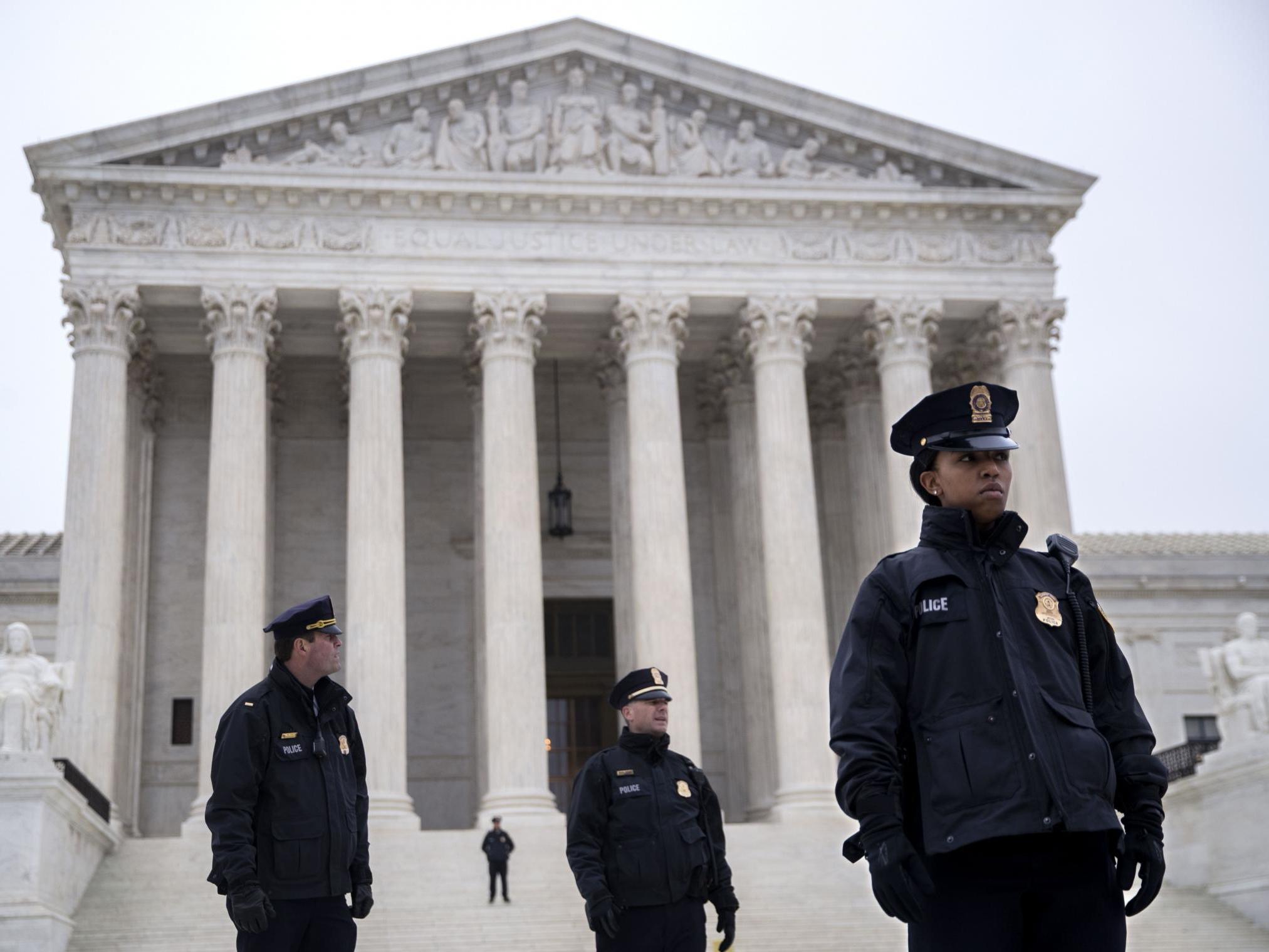Man arrested for calling police officer a 'dirty cop' in Facebook comment
Lawyers argue case of criminal libel violates right to free speech

Like lots of Americans, Robert Frese is not shy about expressing his views on the internet. Last year, in a comment on a newspaper’s Facebook page, he said a New Hampshire police officer who had given him a traffic citation was “a dirty cop.” The police chief, Mr Frese added, was a coward who had covered up the matter.
The police officers might have looked the other way. They might have responded, explaining their positions and letting readers decide who was right. They might have filed a civil suit for libel, seeking money from Mr Frese.
Instead, they did a fourth thing, one that seems at odds with the American commitment to free expression, particularly where criticism of government officials is concerned. They arrested Mr Frese, saying he had committed criminal libel.
About half of states have laws making libel a crime, and prosecutions are not uncommon. About 25 people were charged with violating New Hampshire’s law from 2009 to 2017, according to a lawsuit filed last month on behalf of Mr Frese by the American Civil Liberties Union. Nationwide, according to a preliminary count by Eugene Volokh, a law professor at the University of California, Los Angeles, “it appears that they happen about 20 times per year, and often lead to convictions.”
Mr Frese himself has faced two prosecutions. The first, in Hudson, New Hampshire, was prompted by his negative statements about a life-coaching business. It ended in a guilty plea and a $1,488 (£1,164) fine, with $1,116 of it suspended.
The second, in Exeter, New Hampshire, concerned his recent statements about the police there. It was dismissed after the state attorney general’s office expressed doubts about the constitutionality of the prosecution.
The New Hampshire law is fairly typical. It makes it a misdemeanour for anyone to say or write something “he knows to be false and knows will tend to expose any other living person to public hatred, contempt or ridicule.”
Brian Hauss, an ACLU lawyer, said the New Hampshire law and others like it violated the First Amendment.
“The fundamental defect of criminal libel statutes is that they’re unconstitutionally vague,” he said. “The practical result of that is that police departments, like the police department in Exeter, get to choose when they want to go after speech that is arguably defamatory.”
The defendant in the case is Gordon MacDonald, New Hampshire’s attorney general. A spokesperson for his office declined to comment, but a memorandum on Mr Frese’s case from a lawyer in his office appears to set out his basic position.
The lawyer, Elizabeth A Lahey, said the state’s criminal libel law was constitutional, as it required prosecutors to prove Mr Frese knew he was saying something false in criticising the police chief. (That is an even higher bar than the one required in civil libel cases brought by public officials. Under the Supreme Court’s 1964 decision in New York Times v Sullivan, they must prove “actual malice” — that the defendant knew what he said was false or acted with reckless disregard as to the statement’s truth.)
The problem with the prosecution of Mr Frese, Ms Lahey wrote, was that the authorities had no reason to think he believed his statements were false. The Exeter Police Department dropped the prosecution after getting Ms Lahey’s memo.
Letting government officials prosecute their critics for supposed misstatements is a dangerous business. But not every criminal libel prosecution concerns official conduct, and people who have studied the matter say criminal libel prosecutions may have a role to play in vindicating damaged reputations.
Mr Volokh, an authority on the First Amendment, said narrowly written criminal libel laws were constitutional. A 1964 Supreme Court decision, Garrison v Louisiana, struck down a state criminal libel law, but only because it did not require proof of actual malice in cases concerning public officials. The majority opinion, from Justice William J Brennan Jr, suggested criminal laws that included an actual malice requirement were permissible.
Mr Hauss, the ACLU lawyer, said the Garrison decision did not address the argument that criminal libel laws are unconstitutionally vague.
I asked Mr Volokh whether criminal libel laws were good policy.
“That’s hard to tell,” he said. “On one hand, they can certainly be abused for political purposes, and they can deter even true statements, if the speaker is worried that a prosecutor and a jury will think the statements are false.”
On the other hand, he said, civil lawsuits seeking money may do nothing to deter or punish someone who has no money. “Without the possibility of criminal libel law,” he said, “there may be no real protection against many libels, especially now that the internet has substantially democratised mass communication — both for good and for ill.”
Mr Hauss said the nature of internet discourse was a reason to do away with criminal libel laws. “Every day, there are millions of posts that are arguably defamatory online,” he said. “But disproportionately, when criminal libel prosecutions are brought, they’re brought by law enforcement and public officials to go after their critics.”
The fact some people are too poor to pay civil libel awards is not a reason to allow prosecutions, Mr Hauss added. “If someone cannot afford to pay a civil judgment, they also probably lack the resources to hire a criminal defence lawyer,” he said. “Without the aid of counsel, a criminal defendant will almost certainly plead guilty or be convicted at trial, regardless of whether their speech was actually defamatory.”
The New York Times
Join our commenting forum
Join thought-provoking conversations, follow other Independent readers and see their replies
Comments
Bookmark popover
Removed from bookmarks